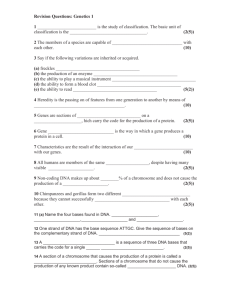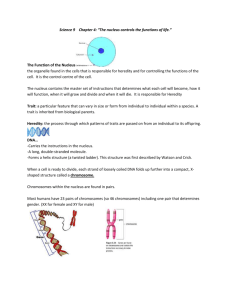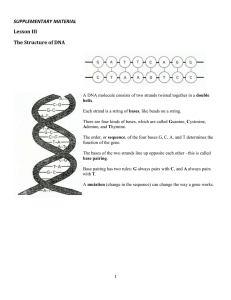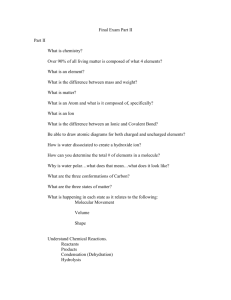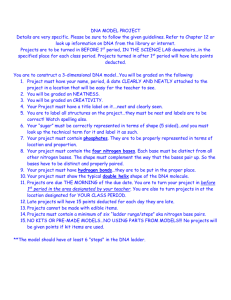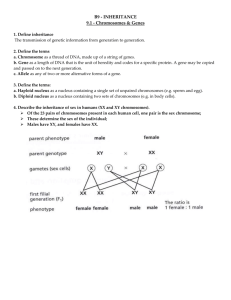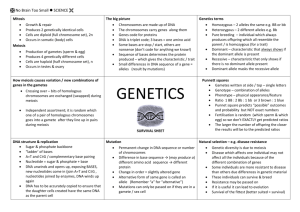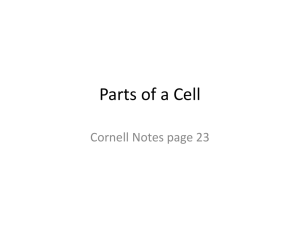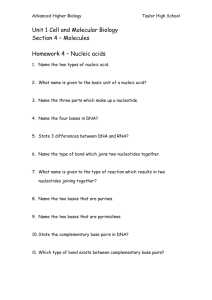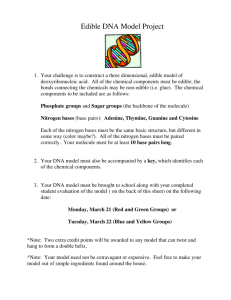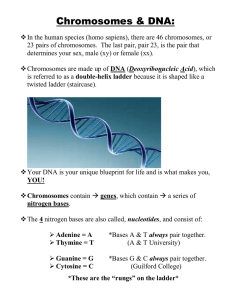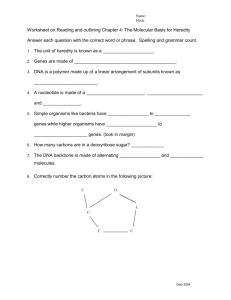Genes, Chromosomes and DNA
advertisement
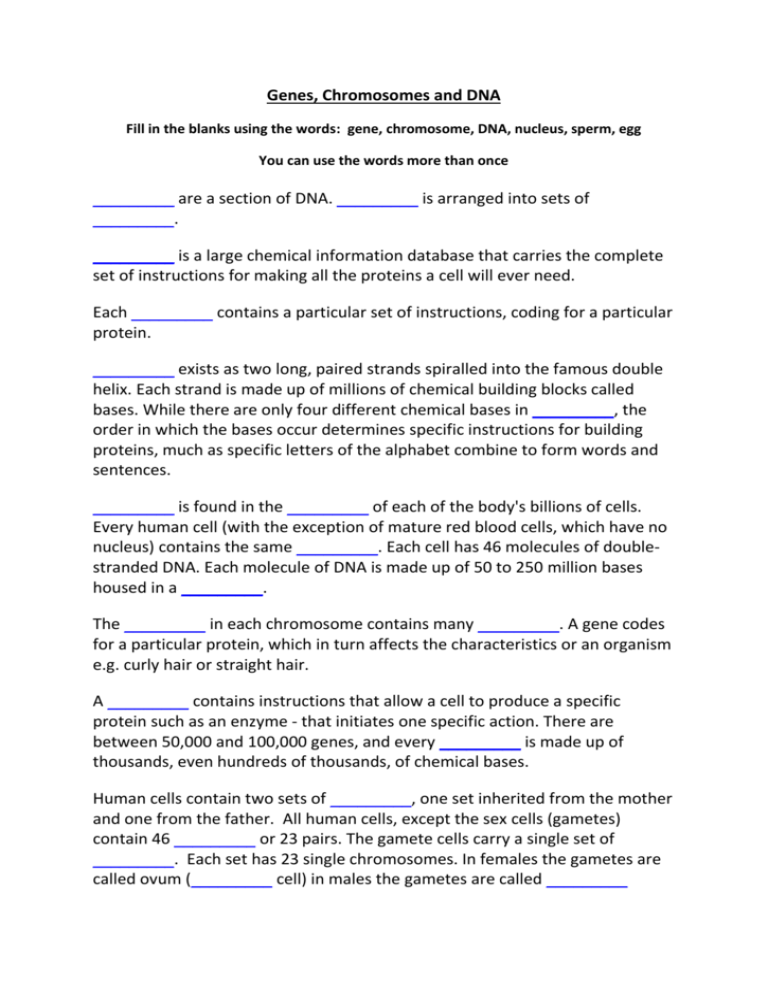
Genes, Chromosomes and DNA Fill in the blanks using the words: gene, chromosome, DNA, nucleus, sperm, egg You can use the words more than once _________ are a section of DNA. _________ is arranged into sets of _________. _________ is a large chemical information database that carries the complete set of instructions for making all the proteins a cell will ever need. Each _________ contains a particular set of instructions, coding for a particular protein. _________ exists as two long, paired strands spiralled into the famous double helix. Each strand is made up of millions of chemical building blocks called bases. While there are only four different chemical bases in _________, the order in which the bases occur determines specific instructions for building proteins, much as specific letters of the alphabet combine to form words and sentences. _________ is found in the _________ of each of the body's billions of cells. Every human cell (with the exception of mature red blood cells, which have no nucleus) contains the same _________. Each cell has 46 molecules of doublestranded DNA. Each molecule of DNA is made up of 50 to 250 million bases housed in a _________. The _________ in each chromosome contains many _________. A gene codes for a particular protein, which in turn affects the characteristics or an organism e.g. curly hair or straight hair. A _________ contains instructions that allow a cell to produce a specific protein such as an enzyme - that initiates one specific action. There are between 50,000 and 100,000 genes, and every _________ is made up of thousands, even hundreds of thousands, of chemical bases. Human cells contain two sets of _________, one set inherited from the mother and one from the father. All human cells, except the sex cells (gametes) contain 46 _________ or 23 pairs. The gamete cells carry a single set of _________. Each set has 23 single chromosomes. In females the gametes are called ovum (_________ cell) in males the gametes are called _________
